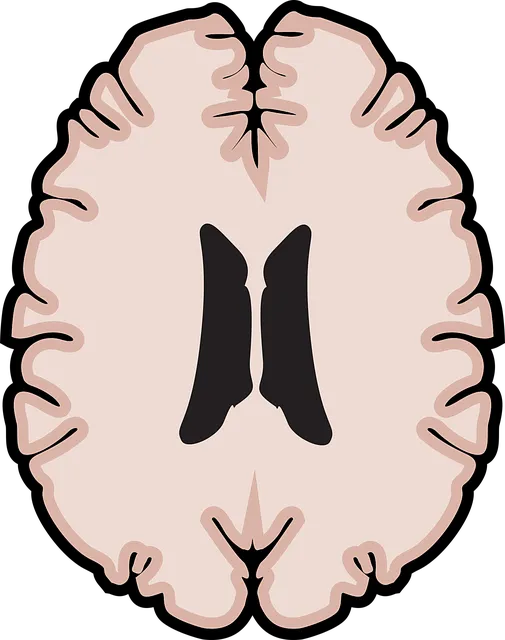The Westminster Kaiser mental health programs offer a holistic approach using Mind Over Matter principles, combining therapeutic interventions, educational workshops, and self-awareness exercises. Evaluated through both quantitative (surveys, standardized tests) and qualitative (interviews, focus groups) methods, these programs aim to improve emotional intelligence, manage stress, build resilience, and promote sustainable lifestyle changes. By integrating data from both approaches, Westminster Kaiser refines their programs, such as the Mental Wellness Podcast Series, to cater to diverse mental health needs effectively.
“Westminster Kaiser’s mental wellness programs have established a robust framework for evaluation, offering valuable insights into their effectiveness. This article delves into the diverse methods employed to assess these programs, spanning quantitative and qualitative approaches. We explore how Quantitative Assessment Techniques measure impact and outcomes, while Qualitative Research Methods uncover participant experiences. Additionally, we highlight the power of Mixed Methods, integrating both perspectives for a comprehensive evaluation. By understanding these evaluation methods, we gain valuable knowledge about Westminster Kaiser’s mental health programs.”
- Understanding Westminster Kaiser Mental Health Programs: A Foundation for Evaluation
- Quantitative Assessment Techniques: Measuring Impact and Outcomes
- Qualitative Research Methods: Uncovering Insights and Participant Experiences
- Mixed Methods Approach: Integrating Quantitative and Qualitative Data for Comprehensive Evaluation
Understanding Westminster Kaiser Mental Health Programs: A Foundation for Evaluation

The Westminster Kaiser Mental Health Programs are designed to promote holistic mental wellness, incorporating evidence-based practices and innovative approaches. At the heart of these programs lies a commitment to empowering individuals with Mind Over Matter Principles, fostering self-reliance, and nurturing resilience in the face of life’s challenges. Through a combination of therapeutic interventions, educational workshops, and Self-Awareness Exercises, participants are equipped with the tools needed to manage stress, enhance emotional intelligence, and cultivate mental fortitude.
These programs recognise the intricate relationship between mental health and overall well-being, addressing not just symptoms but underlying causes. By placing emphasis on burnout prevention, they encourage sustainable lifestyle changes that promote self-care and maintain mental equilibrium. The Westminster Kaiser Mental Health Programs serve as a comprehensive framework for evaluation, allowing for continuous improvement based on participant outcomes and feedback, ensuring the efficacy and relevance of the services provided.
Quantitative Assessment Techniques: Measuring Impact and Outcomes

Quantitative assessment techniques play a pivotal role in evaluating the effectiveness of mental wellness programs, such as those offered by Westminster Kaiser. By employing structured tools and metrics, researchers can measure the impact and outcomes of these initiatives on various aspects of mental health. Surveys, questionnaires, and standardized tests are commonly used to gauge participants’ perceptions of their own well-being, levels of stress, anxiety, depression, and overall life satisfaction before and after program involvement.
These quantitative methods allow for data analysis that can identify trends, correlations, and statistical significance related to the implementation of specific mental wellness programs. For instance, evaluating Westminster Kaiser’s resilience-building initiatives through pre-post comparisons could reveal improvements in participants’ ability to cope with stress and adversity, enhancing their overall Mental Health Awareness and fostering Positive Thinking. Such findings can inform program enhancements, resource allocation, and best practices in promoting mental wellness on a broader scale.
Qualitative Research Methods: Uncovering Insights and Participant Experiences

Qualitative research methods play a pivotal role in evaluating mental wellness programs, offering a deep dive into participant experiences and insights that quantitative measures often miss. These approaches, such as interviews, focus groups, and observations, allow individuals to share their stories, expressing nuanced emotions and perceptions related to Westminster Kaiser mental health programs. By listening to their voices, researchers can uncover hidden barriers and facilitators to mental well-being, informing program improvements.
Furthermore, qualitative methods are instrumental in exploring the complex interplay between social determinants of health, cultural contexts, and personal narratives, which significantly impact mental health outcomes. This comprehensive understanding is essential for advocates involved in Mental Health Policy Analysis and Advocacy, as it enables them to develop Empathy Building Strategies that resonate with diverse populations, fostering a more inclusive and effective Mental Health Awareness framework.
Mixed Methods Approach: Integrating Quantitative and Qualitative Data for Comprehensive Evaluation

The Westminster Kaiser mental health programs have long recognized the value of a comprehensive evaluation process to measure and enhance their effectiveness. One powerful method gaining traction in this field is the Mixed Methods Approach, which seamlessly integrates quantitative data analysis with qualitative insights for a more holistic understanding. This approach allows researchers and program evaluators to delve deeper into the complex nature of mental wellness.
By combining structured surveys, statistical analyses, and rich narrative data from interviews or focus groups, mixed methods offer a nuanced perspective on participants’ experiences. For instance, quantitative data can reveal trends in anxiety relief or stress reduction across different demographics, while qualitative components provide personal stories and perspectives, offering a more vivid picture of the program’s impact. This dual-faceted strategy ensures that both broad patterns and individual journeys are captured, enabling Westminster Kaiser to refine their Mental Wellness Podcast Series Production and tailor Stress Reduction Methods to better suit diverse needs.
Evaluating mental wellness programs, such as those offered by Westminster Kaiser, is a multifaceted process that leverages both quantitative and qualitative methods. By employing techniques like survey analysis, focus groups, and mixed methods, stakeholders can gain profound insights into program effectiveness and participant experiences. This dual approach ensures a comprehensive understanding of the impact, enabling informed decisions to enhance and optimize mental health support, ultimately fostering better outcomes for all involved.






